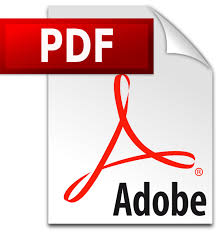How To Record an Owner’s Draw In Quickbooks
 An owner’s draw is a separate equity account that’s used to pay the owner of a business. The funds are transferred from the business account to the owner’s personal bank account. If you own a business, you should pay yourself through the owner’s draw account. For more details on how to record an owner’s draw in Quickbooks, keep reading.
An owner’s draw is a separate equity account that’s used to pay the owner of a business. The funds are transferred from the business account to the owner’s personal bank account. If you own a business, you should pay yourself through the owner’s draw account. For more details on how to record an owner’s draw in Quickbooks, keep reading.
Setting Up an Owner’s Draw
Before you can record an owner’s draw, you’ll first need to set one up in your Quickbooks account. Visit the Lists option from the main menu followed by Chart of Accounts. At the bottom of the Chart of Accounts page, you should see an option titled Accounts, click it and choose New. Select Equity and Continue.
Last but not least, you’ll need to enter a name for this account, such as “Owner’s Draw Account” or “Business To Owner Payment,” etc. Quickbooks also gives users the option to include a short description with their owner’s draw account. This is entirely optional, but it’s still a good idea to include some basic information about the account so you’ll know exactly what it’s used for (sending payments to the owner).
Recording an Owner’s Draw
Recording owner’s draw in Quickbooks is a quick and easy process that should only take a couple of minutes (assuming you’ve already set up the account using the steps previously mentioned). To record a transaction between the business and owner’s account, go into the Banking menu in Quickbooks and select the option titled Write Checks.
If you’re the business owner and want to record an owner’s draw, you’ll basically want to write the check out to yourself — like you are paying yourself with a check. Before you finish, however, you’ll need to assign the amount of the check to the equity account in the details menu. Double check this amount to ensure it’s correct. Although you can back to edit these details later, taking an extra minute to double check the amount of your recorded owner’s draw will make things easier in the long run.
Note: funds transferred using owner’s draw shouldn’t be used for business-related expenses. Think of an owner’s draw as your own paycheck. Rather than using this money to buy business-related expenses, it should be used for personal transactions. Business-related expenses, on the other hand, should come from the actual business account.
Five Reasons To Choose Hosted Quickbooks
 The Intuit Hosting Program allows businesses to host their licensed copy of Quickbooks (desktop versions) on a server owned and/or maintained by an authorized third-party vendor like MyVao.com. There are a number of key advantages to choosing hosted Quickbooks. If you’re still on the fence and can’t seem to choose between installing Quickbooks on your own computer or signing up for hosted Quickbooks, keep reading to learn more about the Intuit Hosting Program and some of the unique benefits it offers.
The Intuit Hosting Program allows businesses to host their licensed copy of Quickbooks (desktop versions) on a server owned and/or maintained by an authorized third-party vendor like MyVao.com. There are a number of key advantages to choosing hosted Quickbooks. If you’re still on the fence and can’t seem to choose between installing Quickbooks on your own computer or signing up for hosted Quickbooks, keep reading to learn more about the Intuit Hosting Program and some of the unique benefits it offers.
Reason #1) It’s Faster
Does your desktop or laptop computer run at a snail’s pace. It’s hard to perform basic accounting tasks when your computer spends most of its time loading. Thankfully, hosted Quickbooks eliminates this problem by using high-end servers and remote computers to execute processes. This translates into faster speeds and better performance for the end user.
Reason #2) Better Customer Support
A second reason why you should choose hosted Quickbooks is because it offers a higher level of customer support. If you ever need help with a particular task or function, you can call up the hosting provider. They’ll be able to walk you step-by-step through the process, answers your questions while offering you their expertise. Of course, Intuit is also just a phone call away, offering another level of customer support for Quickbooks users.
Reason #3) Easy To Use
It’s a common assumption that hosted Quickbooks is more difficult to use for the simple fact that it’s installed on a third-party server, but this isn’t true. On the contrary, it’s actually incredibly easy to use, requiring nothing more than a basic remote desktop terminal. Once the terminal application is set up on your computer, you can log into your hosted Quickbooks to access your account.
Reason #4) Reputable Hosting Companies
Intuit doesn’t allow just any fly-by-night company to participate in their commercial hosting program. In order to participate in the program, hosting companies must submit an application and independent accreditation. Only then will Intuit decide whether or not the company is suitable for the Intuit Hosting Program.
Reason #5) Available With Any Desktop Version
The Intuit Hosting Program is available for any version of Quickbooks desktop. Whether you use Quickbooks Pro, Premier, Enterprise, Accountant or Point of Sale, you can install the software on an authorized third-party host to take advantage of all of these benefits and more. Note: Quickbooks online is not available for use with the Intuit Hosting Program.
How To Transfer Funds Between Different Accounts
 Quickbooks allows users to transfer money between different bank accounts in just a few simple steps. For instance, if you need to move funds from your business savings account into your checking account to cover the costs of monthly utilities or any other business expensive, you can easily do so with Quickbooks. All it takes is a couple of minutes to transfer funds from one account to another.
Quickbooks allows users to transfer money between different bank accounts in just a few simple steps. For instance, if you need to move funds from your business savings account into your checking account to cover the costs of monthly utilities or any other business expensive, you can easily do so with Quickbooks. All it takes is a couple of minutes to transfer funds from one account to another.
Note: you cannot transfer funds between accounts payable (AP) and accounts receivable (AR). These accounts are tied directly into the accounting software rather than your bank accounts; therefore, you can’t move funds between them.
There are actually a few different ways to move funds from one account to another, including the Deposits and Journal Entry menus. However, the method I’m going to reveal here involves the built-in Transfer feature that’s included in all versions of Quickbooks. This is arguably the easiest and most effective ways to move funds between two or more different accounts. As you become familiar with Quickbooks, you may want to use the Deposits or Journal Entry method, but it’s probably best to stick with the Transfer method for now.
Steps To Transferring Money
- Log into your Quickbooks account.
- Access the Banking menu.
- Select Transfer.
- Enter the date.
- Click the drop-down box next to the option labeled Transfer Funds From and choose the account that you wish to transfer money from.
- Click the drop-down box next to the option labeled Transfer Funds To and choose the account that you wish to money the money to.
- Enter in the amount you wish to transfer between the two accounts.
- Click the Save button.
- Congratulations, you’ve just transferred money between two different accounts!
It’s important to remember that money transfers can take up to 48 hours to complete. Don’t assume that your accounts will immediately reflect the change after performing the steps mentioned above. Depending on your financial institution, it can take a while. Be patient and check your accounts either online or by phone to determine when the transfer went through.
You can also transfer money using the Check Expense option. Basically, this involves writing yourself a check from the respective account. The main benefit in using this option is the ability to write down the check number, which is something that’s missing from the Transfer option.
Did this tutorial work for you? Let us know in the comments section below!
How To Save Quickbooks Files In PDF Format
 Portable Document Format (PDF) is one of the most widely used file formats for documents. One of the features that makes this universal file format stand out from the rest is its ability to preserve font styles, font sizes, formatting and even images, all of which are critical when running a business. And being that Adobe offers a free PDF reader (Acrobat® Reader®), there’s really no reason why business owners shouldn’t use this format for their files.
Portable Document Format (PDF) is one of the most widely used file formats for documents. One of the features that makes this universal file format stand out from the rest is its ability to preserve font styles, font sizes, formatting and even images, all of which are critical when running a business. And being that Adobe offers a free PDF reader (Acrobat® Reader®), there’s really no reason why business owners shouldn’t use this format for their files.
If you manage your business using Intuit Quickbooks, you might be wondering if it’s possible to save your files in PDF format. Quickbooks doesn’t save files in PDF format by default, but it’s certainly capable of doing so with a little work on your part. In fact, Intuit (the makers of Quickbooks) will automatically include a download link to Acrobat® Reader® in all emails containing a PDF file, allowing clients and associates to easily read the respective documents.
Email Forms
While documents saved locally are not automatically converted to PDF format, Quickbooks does in fact convert emailed documents to this universal format. Whether you’re emailing a sales receipt, purchase order, sales order, memo, bank statement, etc., Quickbooks will automatically convert the document into PDF format. In addition, it will also include a download link to the free Adobe PDF reader.
It’s the small things such as this that attract so many business owners to Intuit Quickbooks. There’s no need to manually convert your files to PDF format before emailing them, as Quickbooks takes care of this for you. Sure, this may only save you a couple of minutes, but those minutes will quickly add up over the course of your business. And in the highly competitive free-trade marketplace, that extra time can mean the difference between success and failure.
What About Local Files?
In order to save Quickbooks files locally in PDF format, you need to specify the format beforehand. Start by pulling up the form you wish to save in PDF format. Next, click on the tap labeled ‘File,’ followed by ‘Save as.’ You should now be able to choose from a wide variety of format options. Scroll through the available formats until you see PDF. Select PDF as the file format, choose a destination on your computer or storage disk and click ‘Save.’ Voila, your Quickbooks file will now be saved in PDF format to the specified location.
Is Hosted Quickbooks Right For My Business?
 Hosted Quickbooks is a versatile accounting platform for businesses of all sizes. Whether you run a small, medium or large-sized business, it will take the burden of management and accounting off your shoulders, allowing you to focus on the more important aspects like growth and expansion. Far too many business owners fall victim to micromanagement, which eats through their time and resources. Hosted Quickbooks is designed to eliminate this problem with its hands-off approach to business management and accounting.
Hosted Quickbooks is a versatile accounting platform for businesses of all sizes. Whether you run a small, medium or large-sized business, it will take the burden of management and accounting off your shoulders, allowing you to focus on the more important aspects like growth and expansion. Far too many business owners fall victim to micromanagement, which eats through their time and resources. Hosted Quickbooks is designed to eliminate this problem with its hands-off approach to business management and accounting.
But trying to determine which Quickbooks program is right for your business can be a daunting task. Technically, there are three different categories of Quickbooks programs: Quickbooks Online, Desktop Quickbooks, and Hosted Quickbooks, each of which has its own unique features.
Quickbooks Online Is Not The Same as Hosted Quickbooks
Some people assume Quickbooks Online and Hosted Quickbooks refer to the same program. While they may share some of the same features, they are two different types of accounting products offered by Intuit. Quickbooks Online is subscription-based accounting solution that requires the user to log in to their account through a web browser. If you aren’t completely satisfied with Quickbooks Online, simply cancel your subscription and you’ll never be billed again. Many users prefer the simplicity and freedom it offers, but it still comes up short when compared to Hosted Quickbooks.
Hosted Quickbooks is where an authorized third-party vendor, such as MyVao.com, hosts a desktop version (not online) of Quickbooks for its client. The client then uses a remote desktop connection terminal to access their Quickbooks while it’s stored on a third-party server.
Sure, you can download and install desktop versions of Quickbooks to your own computer, but allowing an Intuit-authorized third-party company to handle this task offers several unique advantages. For starters, they typically have bigger, faster and more powerful computers, which translates into better performance. Third-party Quickbooks hosts can also assist their users with setup, maintenance and general tech support.
Intuit currently supports the following versions of Quickbooks for use with its commercial hosting program:
- QuickBooks Pro
- QuickBooks Premier
- QuickBooks Accountant Edition
- QuickBooks Enterpise Solutions
- QuickBooks Point of Sale
So, is Hosted Quickbooks the right choice for you? There’s really no easy answer to this question, as everyone’s situation is different. With that said, Hosted Quickbooks offers all of the same benefits as typical self-hosted Quickbooks but with a few added benefits. I recommend test driving it to see for yourself whether it’s the right fit for your business’s needs.
Hosted Quickbooks Pro Features
 Running a business shouldn’t get in the way of running a business. Unfortunately, however, this leads to the downfall of hundreds of new businesses each year. When the owner is forced to spend all of his or her time performing accounting work, they aren’t able to grow and expand the business; thus, sending it spiraling downwards. Hosted Quickbooks Pro is designed to simplify the process of business accounting so you can focus on the real things that matter — like creating strong professional relationships and growing your business.
Running a business shouldn’t get in the way of running a business. Unfortunately, however, this leads to the downfall of hundreds of new businesses each year. When the owner is forced to spend all of his or her time performing accounting work, they aren’t able to grow and expand the business; thus, sending it spiraling downwards. Hosted Quickbooks Pro is designed to simplify the process of business accounting so you can focus on the real things that matter — like creating strong professional relationships and growing your business.
Hosted Quickbooks Pro is part of the Intuit Hosting Program, meaning the software is hosted on super computers, known as servers, which are operated and maintained by licensed third-party companies. Intuit has a very strict set of rules and requirements in order for a company to participate in their Hosting Program. The official Intuit Quickbooks website stated the following:
“To become Intuit-Authorized, the hosting company must undergo an application process and an independent third-party accreditation for each selected host.”
Quickbooks Pro is available in both desktop and hosted versions. To achieve the greatest level of productivity and efficiency offered by this versatile accounting program, you’ll probably want to stick with the hosted version. Having your copy of Quickbooks Pro hosted on a third-party server means you can access it from anywhere, anytime, regardless as to whether or not you have access to your personal computer. Just log in to the server using a remote desktop connection tool and you’ll be granted full control over your Quickbooks Pro software.
Top Features of Hosted Quickbooks Pro:
- Simplified customer forms.
- Contact information for customers, vendors and employees automatically stored.
- Track and follow sales leads using Quickbooks Pro ‘Lead Center.’
- Document Center allows users to attach and store related documents.
- Access to a wide variety of report templates.
- Ability to track bounced checks.
- Track sales and revenue.
- Download financial information from bank and/or credit card accounts directly into Quickbooks Pro.
- Import Excel, Quicken and Microsoft Office Accounting data.
One of the decisions you’ll have to make when signing up for Quickbooks Pro is whether to purchase the desktop or hosted version. The actual software for both of these options is the same; however, the difference is that Hosted Quickbooks Pro offers a greater level of support along with better computing power. Take your time to familiarize yourself with the both the hosted and desktop versions to determine which one is right for you.
Hosted Quickbooks vs Quickbooks Online: Which One Is Best?
 Can’t seem to choose between Intuit’s Quickbooks Online and Hosted Quickbooks? While both of these products offer tons of business accounting features, there are some notable differences between the two that shouldn’t go unnoticed. Whether you’re looking to take the plunge into Quickbooks or simply upgrade your current version, you should familiarize yourself with the pros and cons of both Quickbooks Online and Hosted Quickbooks. Only then can you make the smartest decision possible regarding which one is right for your business.
Can’t seem to choose between Intuit’s Quickbooks Online and Hosted Quickbooks? While both of these products offer tons of business accounting features, there are some notable differences between the two that shouldn’t go unnoticed. Whether you’re looking to take the plunge into Quickbooks or simply upgrade your current version, you should familiarize yourself with the pros and cons of both Quickbooks Online and Hosted Quickbooks. Only then can you make the smartest decision possible regarding which one is right for your business.
Hosted Quickbooks
The Intuit Hosting Program allows licensed third-party companies to host their clients’ Quickbooks software. The software is installed and hosted on a server maintained by the company, and the client uses a virtual desktop application, such as Windows Remote Desktop Connection, to log in and access their software.
Because clients’ Quickbooks applications are hosted by licensed third-party companies, there are several unique advantages to choosing Hosted Quickbooks versus Quickbooks Online. See the list below for some of the top benefits of Hosted Quickbooks:
- Higher level of customer and technical support (especially beneficial for first-time Quickbooks users).
- Uses the high-tech computing power of professional servers rather than relying on your desktop PC or laptop.
- Data is protected through digital encryption.
- Can access Quickbooks through any computer with a remote desktop application and active internet connection.
- Backups are no longer necessary since Hosted Quickbooks doubles as a remote backup service.
- Access your Quickbooks account anytime, anywhere.
Quickbooks Online
Quickbooks Online differs from the Hosted Quickbooks in a few different ways, primarily being the fact that there’s no third-party company there to answer your questions and offer technical/help support. If you run into an error or problem with Quickbooks Online, you’ll either have to solve it yourself or contact the official Quickbooks support team.
There are some advantages of using Quickbooks Online, some of which includes:
- Ability to access your Quickbooks account anytime, anywhere.
- Inexpensive (starts at just $12.95/month for Quickbooks Online Simple Start).
- Automatic company file backups.
- Expense tracking.
- Sales and income tracking.
- Create and send invoices with the click of a button.
The truth is that you really can’t go wrong with Quickbooks Online OR Hosted Quickbooks. They are two incredibly powerful and equally versatile tools for your business accounting needs. With that said, many users prefer Hosted Quickbooks because of its additional tech and customer support. If you happen to run into any problems (which is bound to happen at some point), you can rest assured knowing that help is just a click away.
How Does The Intuit Hosting Program Work?
 If you’ve spent any time browsing through the different accounting products and services offered by Intuit, you may come across something known as the Intuit Hosting Program. Since the program isn’t required to run and operate Quickbooks, many first-time users avoid it. However, the Intuit Hosting Program is a versatile service that offers some key advantages not found in self-hosted versions of the software.
If you’ve spent any time browsing through the different accounting products and services offered by Intuit, you may come across something known as the Intuit Hosting Program. Since the program isn’t required to run and operate Quickbooks, many first-time users avoid it. However, the Intuit Hosting Program is a versatile service that offers some key advantages not found in self-hosted versions of the software.
What Is The Intuit Hosting Program?
Still scratching your head trying to figure out what exactly is the Intuit Hosting Program? Basically, it’s a service which allows you to host your licensed copy of Quickbooks (see the list of compatible products below) on a remote location owned and maintained by an authorized facility. The facility is responsible for maintaining the software on their servers so users can freely log in and access it from their internet-enabled computer.
If that explanation is a bit too technical, let me try to break it down: the Intuit Hosting Program allows users to host their Quickbooks files on a remote server rather than their own computer. This benefits the user in a number of ways, such as increased security protection through data encryption, automatic file backups, better support, faster speeds and more.
List of Quickbooks products compatible with Intuit Hosting Program:
- Quickbooks Pro
- Quickbooks Premier
- Quickbooks Accountant Edition
- Quickbooks Enterprise Solutions
- Quickbooks Point of Sale
Note: only the products mentioned above are compatible with the Intuit Hosting Program. If you own a licensed version of Quickbooks that’s not mentioned here, you’ll have to install and use it in your own computer.
The first step in hosting your licensed version of Quickbooks on a remote host is to find an Intuit-authorized hosting provider. Intuit maintains a set of strict standards which third-party providers must abide by. Each hosting company that’s approved for the program must first go through an application process along with an independent accreditation. This is necessary to ensure the hosting company is capable of meeting users’ demands.
The Intuit Hosting Program isn’t necessary to run or use Quickbooks, but it does offer some rather than unique benefits. Along with the peace of mind knowing that your files are safely stored on a remote location, you can take advantage of the additional tech support offered by the third-party hosting provider.
myvao.com is fully authorized by Intuit to participate in the Intuit Hosting Program. Be sure to check out our unbeatable service and competitive rates!
Benefits of Choosing a Hosted Quickbooks Provider
 Intuit offers users two different ways to access and use licensed copies of Quickbooks: they can either install the software on their own desktop computer, or they can install it on a remote server via the Intuit Hosting Program. While both of these options provide users with full access to their Quickbooks accounts, there are some notable benefits to choosing the hosted version. If you’re still on the fence and can’t seem to decide which one is right for you, keep reading to learn some of the top benefits of choosing a hosted Quickbooks provider.
Intuit offers users two different ways to access and use licensed copies of Quickbooks: they can either install the software on their own desktop computer, or they can install it on a remote server via the Intuit Hosting Program. While both of these options provide users with full access to their Quickbooks accounts, there are some notable benefits to choosing the hosted version. If you’re still on the fence and can’t seem to decide which one is right for you, keep reading to learn some of the top benefits of choosing a hosted Quickbooks provider.
Increased File Security
The average user’s Quickbooks account contains tons of sensitive data, including bank accounts, client contacts, email addresses, financial data and more. It’s important for users to take the necessary precautions to keep unwanted eyes from prying on this information. Opting to install and use Quickbooks on your own desktop computers leaves this sensitive information susceptible to security flaws, especially if you aren’t familiar with firewalls and protection software.
Hosted Quickbooks providers, however, use encryption technology to ensure your information is safe and secure. This alone is reason enough for many users to choose a professional Quickbooks host rather than installing the software on their desktop computer.
Remote File Access
Another reason why you should choose a hosted Quickbooks provider is because your files are stored remotely rather than locally. Let’s say you go on a business trip only to discover that you left your laptop with Quickbooks back at home. Assuming your Quickbooks is hosted on a remote location, you can use any internet-enabled computer to access it. There’s no need to worry about constantly keeping up with your laptop, as Quickbooks is always just a few clicks away via a web browser.
It’s Faster!
There’s nothing more frustrating than being forced to sit and wait for your Quickbooks program to load. Nine out of ten times, speed problems such as this are the direct result of Quickbooks being installed on a dated computer with low hardware specifications.
Rather than relying on your desktop or laptop to power the resource-intensive operations of Quickbooks, you can choose to place this burden on the shoulders of a professional hosting company. They typically have dedicated servers designed specifically for hosting; therefore, Quickbooks runs faster than it would on a typical desktop computer.
Be sure to check out the Quickbooks hosting services offered here at myvao.com!
Quickbooks Online Backup 101: Cost, Features and More
 Quickbooks Online Backup is an add-on service which allows Quickbooks users to create and store backup copies of their account online. I know what you’re probably thinking: why should I pay to store my backups online when I can store them locally for free? Yes, you can certainly store backup copies of your Quickbooks account either on your computer, USB flash drive, DVD, etc. for no additional charge. However, Quickbooks Online Backup is a versatile tool that offers a number of surprising benefits. To learn more about it, and whether or not it’s right for your business, keep reading.
Quickbooks Online Backup is an add-on service which allows Quickbooks users to create and store backup copies of their account online. I know what you’re probably thinking: why should I pay to store my backups online when I can store them locally for free? Yes, you can certainly store backup copies of your Quickbooks account either on your computer, USB flash drive, DVD, etc. for no additional charge. However, Quickbooks Online Backup is a versatile tool that offers a number of surprising benefits. To learn more about it, and whether or not it’s right for your business, keep reading.
Better Security
One key benefit of Quickbooks Online Backup is the increased security it provides. You can rest assured knowing that all of your sensitive financial data, including bank accounts, is safe thanks to the advanced encryption techniques utilized by Quickbooks Online Backup. Only individuals with the appropriate username and password can access your backups, preventing unwanted prying eyes.
Greater Flexibility
Of course, there’s also a greater amount of flexibility with Quickbooks Online Backup. Here’s a scenario to consider: you’re away on a business trip and need to perform some accounting tasks — only you forgot to bring your Quickbooks computer with you. Assuming you have Quickbooks Online Backup, you can download and install a mirror copy of your account straight to your computer.
Storing your Quickbooks files on a remote cloud-based server opens up a whole new world of possibilities. Whether you’re at home, in the office, or sitting on a beach hundreds of miles away, you can access your files using nothing more than an internet connection.
How Much Does It Cost?
Quickbooks Online Backup is an add-on service that’s offered with all versions of Quickbooks. Here are the current pricing options:
- 5 GB: $4.95/month or $49.95 annually
- 25 GB: $14.95/month or $149.95 annually
- 75 GB: $24.95/month or $219/95 annually
Note: Quickbooks offers a 30-day free trial on all of their Online Backup services. If you aren’t satisfied with the Online Backup service, you can cancel within 30 days to avoid future billing. With that said, most people love the sheer freedom and flexibility of this service, as it’s far more convenient than having to store your backup files locally.
You can sign up for Quickbooks Online Backup by visiting the accounts page and filling out all of the details. Remember to use the same information that’s associated with your Quickbooks account.
